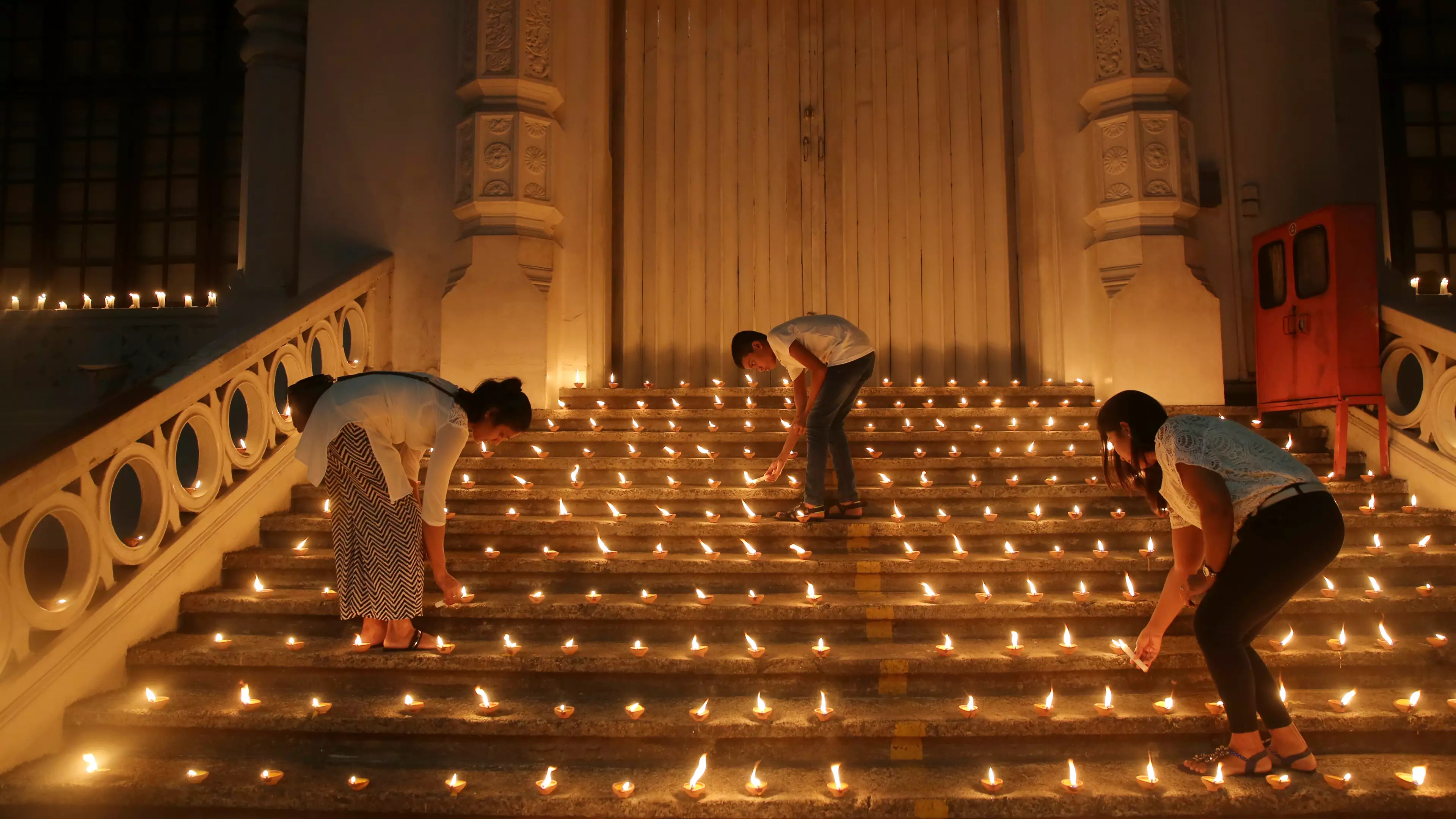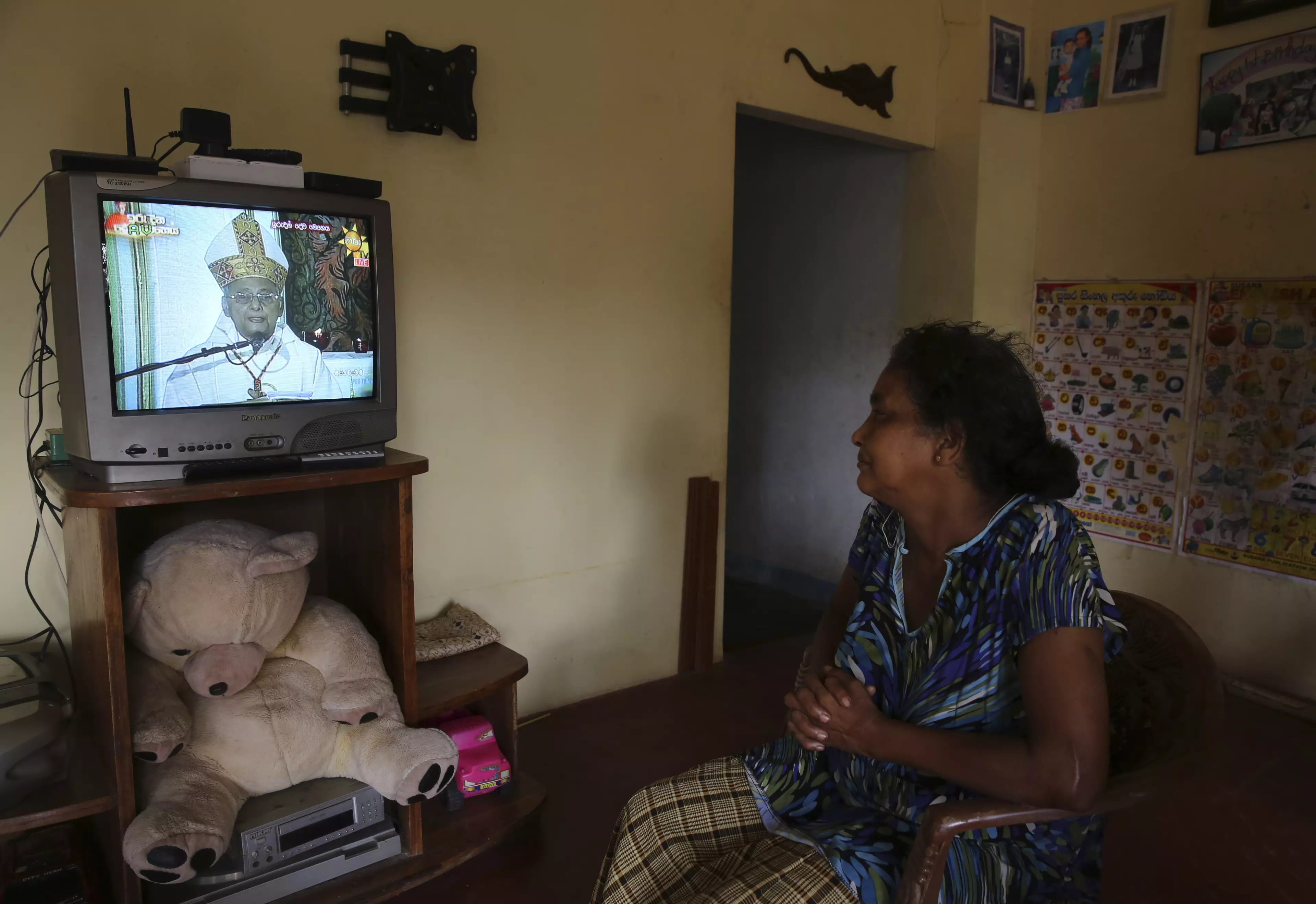
Officials in Sri Lanka have banned face coverings in public following the Easter Sunday attacks that killed at least 250 people and left hundreds more injured.
Sri Lankan president Maithripala Sisirsena has introduced an emergency law to bring in the restriction on facial coverings - such as veils - that 'hinder identification'.
A press release from the president's office and seen by CNN states: "President Maithripala Sirisena took this decision to further support the ongoing security and help the armed forces to easily identify the identity of any wanted perpetrators."

Last week, Sri Lankan MP Ashu Marasinghe proposed a ban on women wearing burqa - telling parliament they should be banned on security grounds, adding that they are 'not a traditional Muslim attire'.
Advert
The country still remains on high alert more than a week after Islamist attacks on a number of churches and hotels.
ISIS claimed responsibility for the attacks which have left at least 250 dead and wounded more than 500 more.
Across the weekend thousands of troops stood guard on the streets of Sri Lanka, protecting places of worship including churches and mosques.
The usual Sunday church services were cancelled right across the country as an additional precaution, but many worshippers joined together to pray at St Anthony's Shrine in the capital.
Advert
There was also a televised mass from the residence of Cardinal Malcolm Ranjith, the archbishop of Colombo. He told worshippers: "This is a time our hearts are tested by the great destruction that took place last Sunday.
"This is a time questions such as, does God truly love us, does he have compassion towards us, can arise in human hearts."
The BBC reports that Sri Lankan authorities have so far arrested 150 people in connection with the attacks, but are still searching for around 140 members of IS believed to be in the country.
Featured Image Credit: PATopics: World News